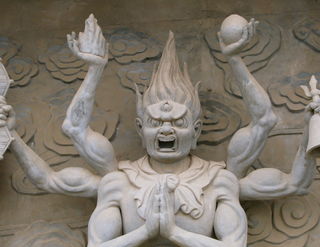
Burnout
Preventing Burnout in the New Era
How do you avoid burnout while engaged in activism and social change?
Posted February 6, 2017
In a time of social and political turmoil like ours, engagement calls even those who have never been active in their lives. The last few weeks have seen an upsurge in citizens' protests following a series of executive orders by the new president. We have seen the women's march, the protests in the airports and across US cities and beyond. There's anger, frustration, disappointment, and division, but also a sense that citizens' engagement. It's important to be aware how all of this can impact our mental health: burnout affects active people and none of us is immune to it, so let's try and understand what it is and how we can prevent it.
What Is Burnout?

Burnout expert Christina Maslach defines burnout as “a syndrome of emotional exhaustion, depersonalization, and reduced personal accomplishment that can occur among individuals who work with people in some capacity.” In other words burnout creeps up leaving us physically, mentally and emotionally exhausted, as well as frustrated, disillusioned, uncaring and cynical. Those who are committed to "a cause" and work for social change, whether voluntarily or professionally, are at particular risk of burnout because they pour their heart and soul in their work, they come with ideals and expectations about how the world should look like. At first they may enjoy their work and feel proud of being so involved and dedicated, yet when rewards and results are limited, when power struggles or other dysfunctional group dynamics emerge, they feel let down and being on call 24/7 for what may start to feel like a lost cause is no longer appealing.
So what can those who want to be in for the long haul can do to overcome the challenges intrinsic in social change and avoid burnout? There is no standard recipe, but simple things can help, I call this "the ABC of burnout prevention": Awareness, Boundaries and Connections. You don't need a therapist or a fancy gym membership to prevent burnout. In fact, you are more likely to need peers who care in a supportive environment where colleagues or fellow activists understand that burnout prevention is something that is not done in isolation, but rather it is a co-responsibility.
The ABC of Burnout Prevention
Those who are more at risk of burnout are the committed idealists: those who give it all and never say no. So for sure personal traits such as perfectionism and pathological altruism make us more prone to burnout, but we need to keep in mind that such syndrome is not simply a problem of the individual. Rather it tends to flourish in groups and organisations where overwork is coupled with unrealistic demands, limited rewards or results and appreciation. Here's what you need to practice if you treasure your wellbeing and if you want to keep making a difference:
Awareness - Be aware of your needs: If you burnout you'll be good to no-one. Also, be aware of the power issues that run among any groups ("do-gooders" are not immune to power). Power struggles often go unspoken in the nonprofit sector and can be what lead people to exhaustion, disillusionment and burnout.
Boundaries - Have healthy boundaries in place: "We need to learn the art of saying no" an activist told me. Indeed, saying no with grace it's a beautiful art. If you want to be on call 24/7 just know that this is the best way to burnout: because while at first you'll be happy to give it all "for the cause", after a while you will expect appreciation, results, change. And they may or may not come. And when they don't come and you have been available at anytime, for anyone or anything, you will be disappointed and angry. Cynicism may kick in. Learn to say no and have a life beyond activism before that happens.
Connections - Keep connected with family and friends, even with those who don't do any activism. They may end up being your sanity space. In his Letter to an Activist, the late activist Tooker Gomber wrote about the importance of connections: "I should have developed a deeper kinship with my family and with people. Don’t get me wrong – I had lots of friends and acquaintances in the activist world. But they were not deep friends of the heart. I neglected my heart, and how I was feeling about things, about people, about situations. Now that I’m in crisis, I don’t really have the language to connect with people. The silence is easier than trying to explain what I’m going through, or to relate to other people’s issues or problems."
Stay rounded and connected not only to what gives you meaning, but also to what brings you joy. Be sure to sit around a table and enjoy a meal, a laugh, a light conversation. Dance, sing and play ping pong. Be sure to have time for silence, nature and loved ones. And most importantly, be sure that your fellow travellers on the road to social change understand that it is only by creating caring and learning "communities" that we can bring about transformation from inside-out without exhausting ourselves.
And remember: Burnout should not be a badge of honour to show how committed we are. It’s ok to have a life beyond work and activism, without guilt or shame.
References
Tooker Gomberg, Letter to an Activist
Giora Keinan and Ayala Malach Pines, “Stress and Burnout: The Significant Difference,” Personality and Individual Differences 39 (2005): 625–35.
Wilmar B. Schaufeli, Michael P. Leiter, and Christina Maslach, “Burnout: 35 Years of Research and Practice,” Career Development International 14, no. 3 (2009): 204–20.

